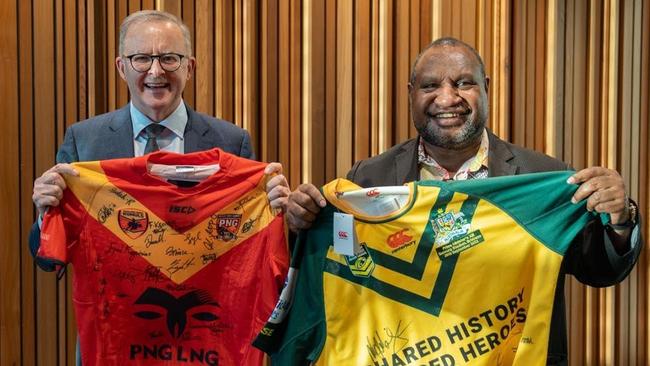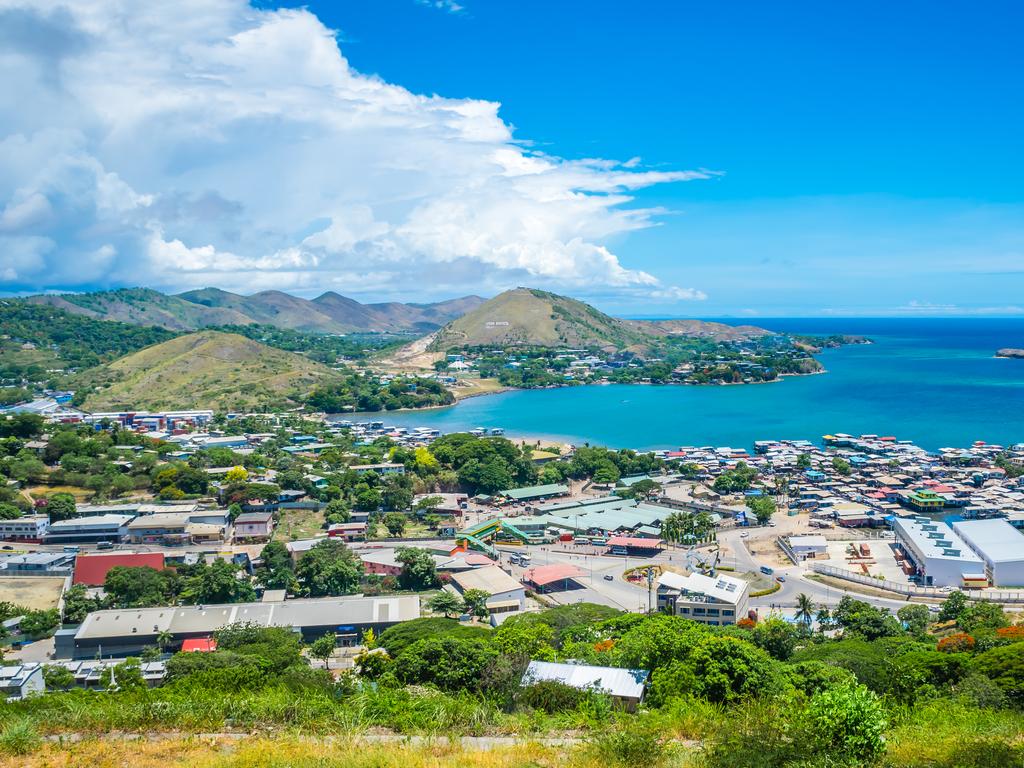
The first such bilateral visit by a prime minister in more than five years is a good time to recalibrate this relationship. The legitimate hopes of Papua New Guineans for a better future has hit constant hurdles, including rapid population growth. The Department of Foreign Affairs and Trade’s fact sheet has PNG’s population at nine million. However, experts believe it exceeds 12 million, 2½ times the New Zealand population. PNG is beautiful and culturally rich but topologically challenging, with hundreds of inhabited islands, and mountains reaching 4500m. Its scattered population often has confounded outsiders’ expectations.
When Mick Leahy led the first major expedition into the Highlands in 1930, tracing gold upriver, the colonial administration thought the PNG interior virtually uninhabited. Surmounting the Daulo Pass, Leahy gazed over the Wahgi Valley, crisscrossed by irrigation channels, smoke rising from countless house-fires, where a million people were living. He later summed up the Highlands to fellow “first contact” expeditioner Jim Taylor: “Jim, good country, good climate, good kanakas, too good to find gold in.” Nevertheless, gold was found there – and copper, oil and gas.
Recently re-elected PNG Prime Minister James Marape – now leading Pangu, the fourth party he has represented in his 20-year political career – claims new resource projects will double the country’s economy by 2030. History has shown that even if this happens – and the challenge to attract the required capital, even from China, is immense – the ultimate net benefit to Papua New Guineans may prove negligible.
National gross domestic product has soared from Southern Highlands oil and gas fields, Bougainville and OK Tedi copper and goldmines, and the Porgera goldmine until it was shut two years ago when the Marape government refused to extend its lease.
But disappointing proportions of royalty and tax revenues have been invested effectively in public goods, especially health, education and infrastructure. Most resource firms in PNG spend heavily on local development to maintain their social licence where they operate. But these become islands of better living standards surrounded by oceans of disappointed people, poorly served by their government.
Port Moresby has raised the “slush fund” given directly to MPs to spend, hopefully in their electorates but without a credible accounting process, to $4.2m each – totalling 5 per cent of the latest budget. PNG economist Maholopa Laveil wrote for the Lowy Institute that these payments “will likely see (Marape) survive votes of no confidence and complete this (five-year) term”.
Unemployment is hard to gauge in PNG but it’s high, especially for the young. Long-term Trade Minister Richard Maru – who led PNG’s refusal to join the Pacific Agreement on Closer Economic Relations free trade area involving Australia yet has thanked China for donating $420,000 for a study into a free trade deal with itself – insists, defying global experience, that import substitution is the answer.
Maru has announced he will chase investment from China to replace rice, chicken, dairy and other imports if Australian firms won’t take the plunge.
Australian taxpayers, after contributing heavily to help Telstra take over Digicel’s mobile telephony in PNG, are being readied to help the PNG government’s Kumul Petroleum to buy up to 10 per cent of the PNG LNG project from Santos, and may be requested to provide further budget support on top of the annual $600m aid. To attract more trade and investment, though, PNG most needs to focus on removing business impediments. And Bougainville demands attention. Almost 98 per cent of Bougainvilleans voted for independence in the 2019 referendum and their patience for Port Moresby’s equivocation won’t last far beyond 2027’s deadline for delivery.
Leading PNG doctor Glen Mola says: “Clearly the health services cannot cope with the current population, whatever it is. The government and many doctors seem to have a view that what they need to focus on is hi-tech, specialist referral health services, when in fact 99 per cent of our population needs basic health services and public health programs to prevent disease and disability.”
The core PNG challenges are unrelated to China but Port Moresby is practised at elevating Beijing’s role to enhance Australian support. It’s right for the Albanese government to review aid policy, but foreshadowed priorities, including “a First Nations approach”, climate change and disability inclusion, may not be among PNG’s most pressing needs. It would be a lost opportunity if the Australian Prime Minister failed to invite business, church, sports, media, academic and cultural leaders to accompany him, to make the point that Australia wants to re-embrace PNG on many levels.
Whole-country engagement needs to be rebuilt, especially from the Australian side, which has for too long forgotten its friends and neighbours.
Rowan Callick is an industry fellow with Griffith University’s Asia Institute.




As Anthony Albanese prepares to make Papua New Guinea his first overseas visit of the new year next Thursday, our former colony languishes at 156th of the 191 countries in the UN’s Human Development Index.